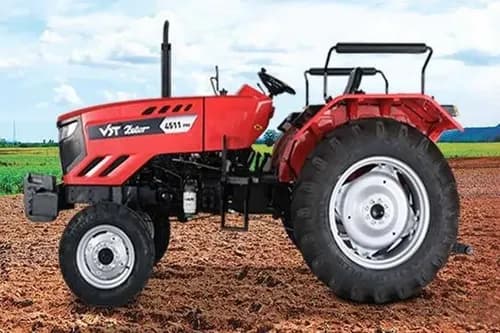Ad
Ad
Ad
Banana Farming In India: A Comprehensive Guide To Banana Farm, Plantation, And Varieties
Banana is one of the healthiest fruits and is therefore popular all over the world. This article gives insight into the various aspects of banana farming in India and the potential profitability per acre.

Banana farming in India holds a significant place in Indian agriculture, contributing substantially to both domestic consumption and export markets. The tropical climate and diverse geographical zones in India make it perfect for banana cultivation.
Banana is a major fruit crop, covering 20% of the total cultivated area in the country. It contributes 37% to the overall fruit production in India. Banana is one of the healthiest fruits and is therefore popular all over the world. It is the second most important fruit crop in India, after mango.
Banana is accessible all year, is inexpensive, nutritious, flavorful, and has many health benefits, making it one of the most popular fruits. It also has high export potential. This article explores the various aspects of banana farming in India, including plantation techniques, popular varieties, and the potential profitability per acre.
Banana Farming In India
Climate and Soil Requirements
Bananas grow in tropical and subtropical climates with well-distributed rainfall. Bananas thrive in temperatures ranging from 15°C to 35°C and relative humidity of 75-85%.
The crop grows well from sea level up to an elevation of 2000 meters above mean sea level (m.s.l.). Bananas are sensitive to frost. Well-drained, fertile soils with a pH ranging from 6 to 7.5 are ideal for banana cultivation.
Also Read: Potato Farming in India: Role of Potatoes in Indian Agriculture
Land Preparation
Land preparation involves ploughing, levelling, and incorporating organic matter into the soil. Farmers often opt for pits or trenches for planting, which facilitates water drainage and prevents waterlogging.
Deep, rich loamy soil is ideal for banana plantation and cultivation. Soil should have good drainage, adequate fertility, and moisture. Avoid saline, calcareous soils and poorly aerated or nutritionally deficient soil.
Planting Spacing
Planting spacing depends on the banana variety and the farming system (high-density or low-density). Generally, the spacing ranges from 6 to 8 feet between plants and 9 to 12 feet between rows.
Bananas require consistent moisture for optimal growth. Drip irrigation or a well-managed canal system is often used to ensure a steady water supply. Overhead irrigation is discouraged to prevent fungal diseases. Add manure and balanced fertilizers to meet the plant’s nutrient requirements.
Banana Varieties in India
India has a rich diversity of banana varieties, each with its unique colour and characteristics. Let’s explore some of the prominent Banana Varieties in India:
Poovan
Poovan bananas are smaller in size compared to other varieties and are often consumed as table bananas. They are popular in southern India and are known for their sweet taste and distinct aroma.
Cavendish
Cavendish bananas, particularly the G9 variety, are extensively cultivated for export purposes. These bananas are favoured for their uniform size, long shelf life, and resistance to certain diseases. It grows in tropical regions with moderate water and good sunlight
Nendran (Plantain)
It is known as Kerala’s pride and is used for cooking (savory dishes). It becomes Starchy and firm when ripe. Excellent for making chips and other traditional dishes.
Robusta
Robusta bananas are known for their resilience to adverse conditions. They are suitable for cultivation in regions with poor soil quality and are resistant to several pests and diseases. These are Commonly found in Karnataka and Kerala and used for both cooking and eating fresh.
Grand Naine
Grand Naine, also known as the Giant Dwarf, is one of the most widely cultivated banana varieties in India. It is favoured for its high yield, resistance to Panama disease, and uniform fruit size. It is Imported from Israel and considered a Superior quality fruit. It is Gaining popularity among Indian farmers.
Remember, this list is just a glimpse of the diverse banana varieties cultivated in India. Each variety has its unique taste, texture, and applications.
Banana Varieties Cultivated in different states of India
Karnataka
- Robusta
- Rasthali
- Dwarf Cavendish
- Poovan
- Monthan
- Elakkibale
Kerala
- Nendran (Plantain)
- Palayankodan (Poovan)
- Rasthali
- Monthan
- Red Banana
- Robusta
Andhra Pradesh
- Dwarf Cavendish
- Rasthali
- Robusta
- Amritpant
- Thellachakrakeli
- Chakrakeli
- Monthan
- Karpoora Poovan
- Yenagu Bontha
Tamil Nadu
- Robusta
- Virupakshi
- Red Banana
- Poovan
- Rasthali
- Monthan
- Karpuravalli
- Nendran
- Sakkai
- Peyan
- Matti
Assam
- Jahaji
- Chini Champa
- Malbhog
- Honda
- Manjahaji
- Borjahaji (Robusta)
- Chinia (Manohar)
- Kanchkol
- Bhimkol
- Digjowa
- Kulpait
- Jatikol
- Bharat Moni
Jharkhand
- Basrai
- Singapuri
Bihar
- Chinia
- Dwarf Cavendish
- Alpon
- Chini Champa
- Kothia
- Malbhig
- Muthia
- Gauria
Gujarat
- Lacatan
- Dwarf Cavendish
- Harichal (Lokhandi)
- Gandevi Selection
- Basrai
- Robusta
- G-9
- Shrimati
Madhya Pradesh
- Basrai
Maharashtra
- Dwarf Cavendish
- Shreemanti
- Basrai
- Robusta
- Lal Velchi
- Safed Velchi
- Rajeli Nendran
- Grand Naine
- Red Banana
Banana Farming Profit Per Acre
Banana farming can be a profitable venture when managed efficiently. Several factors influence profitability, including input costs, market demand, and the choice of variety. On average, the cost of cultivating bananas per acre ranges from INR 1.5 to 2.5 lakhs, considering expenses for land preparation, planting material, fertilizers, irrigation, and pest control.
The selling price of bananas varies based on factors such as quality, size, and market demand. On average, a well-managed banana farm can yield between 15 to 20 tons per acre. With market prices fluctuating, the net profit per acre can range from INR 2 to 4 lakhs.
Challenges in Banana Farming
Some of the challenges of banana farming in India include:
Pests and Diseases
- Black Sigatoka: A leaf spot disease caused by a fungus, it can lead to significant yield losses if not effectively managed.
- Panama Disease: This is a soil-borne fungal disease that affects banana plants, and once a plantation is infected, it can be challenging to eradicate.
- Nematodes and Insects: Pests like nematodes and weevils can also cause damage to the roots and the fruit.
Labour Intensity
- Harvesting: Bananas need to be harvested when they are at the right level of ripeness, which requires careful monitoring and labour-intensive work.
- Cultural Practices: Tasks such as pruning, weeding, and applying fertilizers are essential but demand manual effort.
Weather Vulnerability
- Wind: Banana plants have large, broad leaves that can be easily damaged by strong winds, affecting both the plant's health and the yield.
- Drought and Flooding: Bananas require a consistent water supply. Drought can lead to water stress, while flooding can damage roots and encourage the growth of diseases.
Transportation
- Bananas easily get damaged during transportation if not handled properly. Efficient logistics are crucial to maintaining the quality of the fruit from the farm to the market.
- If the plantation is located far from markets, transportation costs can increase, impacting the overall profitability.
Land and Resource Management
- Land Degradation: Continuous cultivation of bananas in the same area can lead to soil fertility issues and increase the susceptibility to diseases.
- Water Management: Efficient water management is crucial, and improper irrigation practices can lead to water wastage or water stress for the plants.
Market Dynamics
- Price Fluctuations: The market for bananas can be volatile, with prices subject to fluctuations influenced by factors such as demand-supply imbalances, weather conditions, and global trade dynamics.
- Quality Standards: Meeting quality standards for export markets can be demanding, requiring additional investments in infrastructure and practices.
Also Read: Barley Farming In India: A Promising Crop for Indian Farmers
Conclusion
India is well-known for its several banana types and banana production because of the ideal combination of tropical temperature and humidity. The banana variety and its huge health benefits have inspired people all over the world to learn about the value of bananas and to consume bananas.
Consume bananas not only as a fruit, but also as a dessert or use it in preparing a delightful sweet dish with other foods. By adopting modern cultivation practices, choosing suitable varieties, and staying tuned to market dynamics, farmers can enhance their yields and contribute to the country's thriving banana industry.
Features & Articles
Wheat Price Forecast for 2025: What to Expect Across Major Indian States
Wheat prices in 2025 are expected to fluctuate, with strong market conditions and better prices in key wheat-producing states....
26-Dec-24 10:07 AM
Read Full NewsKisan Diwas 2024: Honoring Farmers and Promoting Sustainable Agriculture
Kisan Diwas celebrates farmer’s contributions, honors Chaudhary Charan Singh's legacy, and promotes sustainable agriculture through awareness, innovation, and support....
23-Dec-24 06:57 AM
Read Full NewsNamo Drone Didi Scheme 2024: 80% Subsidy, ₹8 Lakh Aid, Drone Training, Benefits, and Application Process for Women SHGs
Namo Drone Didi Yojana empowers Women SHGs with drones, training, and subsidies, enhancing agricultural efficiency and rural women’s livelihoods....
21-Nov-24 01:12 PM
Read Full NewsPradhan Mantri Fasal Bima Yojana (PMFBY): Comprehensive Guide to Crop Insurance, Benefits, Eligibility, and Application Process
PMFBY is a government-backed crop insurance scheme providing financial protection to farmers against crop losses from natural disasters and pests....
12-Nov-24 11:15 AM
Read Full NewsTop 10 Rice-Producing States in India 2024: Rankings, Insights, Cultivation & Trends
Discover the top 10 rice-producing states in India for 2024, covering production volumes, cultivation methods, and popular rice varieties....
16-Oct-24 11:07 AM
Read Full NewsSubhadra Yojana: Empowering Women in Odisha with Rs. 50,000 Financial Support, Eligibility, Benefits, and Objectives
Subhadra Yojana empowers Odisha women with Rs. 50,000 financial support, promoting digital literacy, health, education, and entrepreneurship....
14-Oct-24 12:00 PM
Read Full NewsAd
Ad
As featured on:


Registered Office Address
Delente Technologies Pvt. Ltd.
M3M Cosmopolitan, 12th Cosmopolitan,
Golf Course Ext Rd, Sector 66, Gurugram, Haryana
pincode - 122002

























